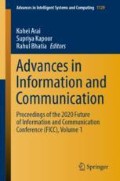Abstract
Digital forensics is crucial for the prosecution of offenders in cyberspace, including nation-state actors and non-nation-state actors. The evidence discovered, verified, and associated during the evidence examination phase serves as the basis for digital forensic analysis and eventually the basis for the verdict of a judge and a jury. However, the current digital forensic evidence examination procedure usually takes a relatively long time, demands a great amount of resources, and requires great efforts from human experts. The biggest challenges in this procedure are accuracy and speed. Nevertheless, in some cases, delay is not allowed, as it may have significant impact upon a critical mission, especially a time-sensitive one. To address this challenge, this paper recommends an AI-based digital forensic evidence examination architecture that is empowered by contextual binding, machine learning, and human-machine teaming. In this approach, human experts are teamed up with artificial intelligence (AI) systems in conducting evidence examination. This approach certainly improves the efficiency and effectiveness of an investigation, thus successfully supporting missions.
Access this chapter
Tax calculation will be finalised at checkout
Purchases are for personal use only
References
Schmidhuber, J.: Deep learning in neural networks: an overview. In: Technical Report IDSIA-03-14. Switzerland: The Swiss AI Lab IDSIA, University of Lugano & SUPSI (2014)
Irons, A., Lallie, H.: Digital forensics to intelligent forensics. Future Internet 6, 583–596 (2014). https://doi.org/10.3390/fi6030584
Lakade, S.: Digital forensics: current scenario and future challenges. Int. J. Inf. Secur. Cybercrime. 4(2) (2015). https://doi.org/10.19107/ijisc.2015.02.02
Simou, S., Kalloniatis, C., Gritzalis, S., Mouratidis, H.: A survey on cloud forensics challenges and solutions. Secur. Commun. Netw. 9, 6285–6314 (2016). https://doi.org/10.1002/sec.1688
Lopez, E., Moon, S., Park, J.: Scenario-based digital forensics challenges in cloud computing. Symmetry 8(107), 1–20 (2016). https://doi.org/10.3390/sym8100107
Alqahtany, S., Clarke, N., Furnell, S., Reich, C.: Cloud forensics: a review of challenges, solutions and open problems. In: Proceedings of the 2015 International Conference on Cloud Computing (ICCC), Riyadh, Saudi Arabia, pp. 1–9, 27–28 April 2015 (2015)
Beebe, N.: Digital forensic research: the good, the bad and the unaddressed. In: Peterson, G., Shenoi, S. (eds.) Advances in Digital Forensics V, pp. 17–36. Springer (2009)
Pollitt, M.: The good, the bad, the unaddressed. J. Digit. Forensic Pract. 2(4), 172–174 (2009). https://doi.org/10.1080/15567280902882852
Marti, R., Reinelt, G.: Heuristic methods. In: The Linear Ordering Problem, Exact and Heuristic Methods in Combinatorial Optimization, vol. 175, pp. 17–40. Springer, Berlin (2011). https://doi.org/10.1007/978-3-642-16729-4_2
Chen, J.: Contextual binding and intelligent targeting. In: Proceedings of the 2016 IEEE/WIC/ACM International Conference on Web Intelligence, pp. 701–704. IEEE (2016)
Chen, J.: An intelligent path towards fast and accurate attribution. In: Arai, K., Kapoor, S., Bhatia, R. (eds.) Intelligent Computing: Proceedings of the 2018 Computing Conference, vol. 2, pp. 1072–1082. Springer (2018)
Nakasone, P.: A cyber force for persistent operations. Joint Force Q. 92(1), 10–14 (2019)
Author information
Authors and Affiliations
Editor information
Editors and Affiliations
Rights and permissions
Copyright information
© 2020 Springer Nature Switzerland AG
About this paper
Cite this paper
Chen, J.Q. (2020). AI-Enabled Digital Forensic Evidence Examination. In: Arai, K., Kapoor, S., Bhatia, R. (eds) Advances in Information and Communication. FICC 2020. Advances in Intelligent Systems and Computing, vol 1129. Springer, Cham. https://doi.org/10.1007/978-3-030-39445-5_60
Download citation
DOI: https://doi.org/10.1007/978-3-030-39445-5_60
Published:
Publisher Name: Springer, Cham
Print ISBN: 978-3-030-39444-8
Online ISBN: 978-3-030-39445-5
eBook Packages: Intelligent Technologies and RoboticsIntelligent Technologies and Robotics (R0)

